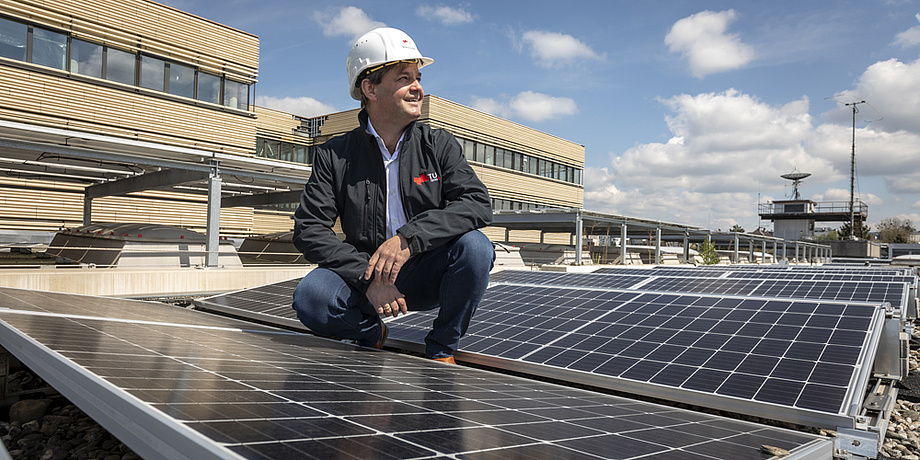In its Roadmap to achieve climate neutrality, TU Graz is focusing on concrete measures in six key areas – from energy and transport to carbon offsetting. In order to reduce emissions in the energy sector, TU Graz produces green electricity itself and is gradually expanding its photovoltaic systems (PV systems) on campus, together with the federal property company BIG as the owner of the buildings.
The first PV system at TU Graz was installed on Campus Inffeldgasse (Inffeldgasse 26) back in 2013. Other systems are now in operation at Inffeldgasse 10, 11, 16, 23 and 24 as well as Sandgasse 34 and 36. Under optimal conditions, the systems on Campus Inffeldgasse achieve a maximum output of 1,048 kilowatt peak (kWp), enabling TU Graz to generate over 765 megawatt hours of solar power in 2023 – roughly equivalent to the annual consumption of 160 single-family homes with four people in the household.
Solar energy at all three campus locations
In 2024, PV systems at Campus Alte Technik (Lessingstrasse 25, Technikerstraße 4) and Campus Neue Technik (Petersgasse 14 and 16, Stremayrgasse 9 and 16) went into operation for the first time. This means that TU Graz now generates solar power at all three campus locations. Together, the latest systems achieve a further 307.5 kilowatt peak (kWp) nominal output.
TU Graz energy management officer Siegfried Pabst is delighted with the progress: “We are continuing to expand the photovoltaic systems and are planning to install solar panels on the roofs of Inffeldgasse 18 and 25 and Rechbauerstraße 12 in the coming year. By the end of 2030, we want to achieve a nominal output of over 2,000 kilowatt peak (kWp) with our PV systems.”

